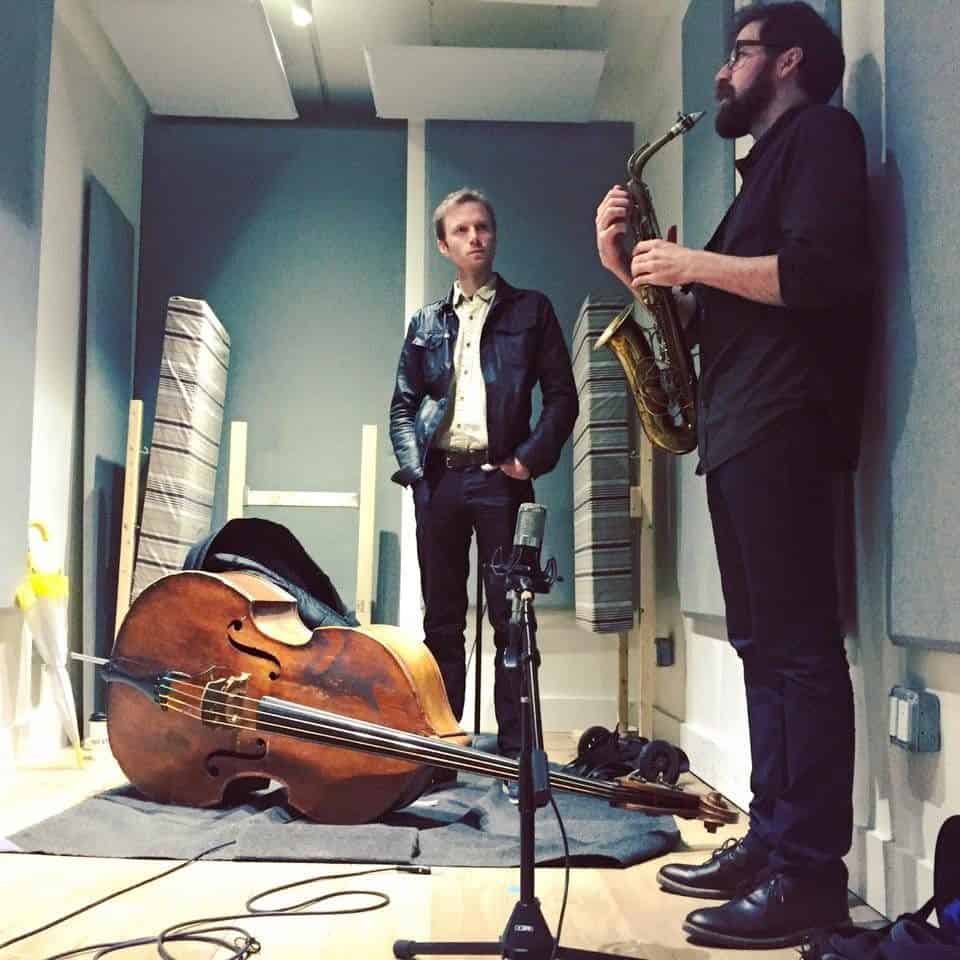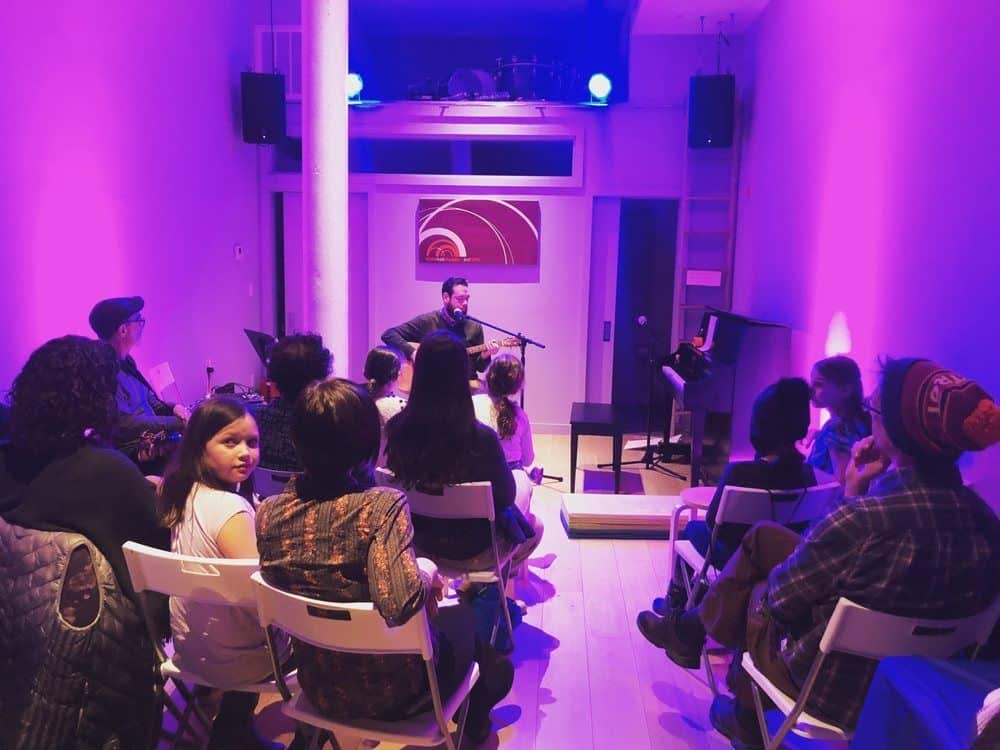As all eyes, ears, and hearts prepare for the wild months ahead leading up to November, everyone everywhere is keenly aware of the political climate (hurricane?) that we’re living through. It’s often hard to know how to act, what to do, or how best to be helpful. Gone is the 24-7 in-the-streets mobilization from 2017, as everyone has been forced to trudge on with their daily lives, doing the daily things we need to do.
Acme Music Hall is a small music school, located in the heart of Park Slope on the corner of 9th street and 7th Ave. They run private lessons, group classes and have a small recording studio that allows kids to learn the art of recording and production. That is, during the daytime. By night, they moonlight as a political hub, of sorts. Owners Rebecca Pronsky and Rich Bennett, both New York natives, have been involved in local politics since the presidential upset three years ago. In 2018, Pronsky campaigned for Liuba Grechen Shirley, and Bennett campaigned for Max Rose, holding fundraisers and phone banks at the music school for both candidates during off-hours.
Throughout 2020, ACME Music Studios is hosting a monthly event called “Nevertheless We,” which is a fundraiser for Get Organized Brooklyn (GOBK), an umbrella support system for dozens of localized, specialized activist groups. On February 7, I attended their event that featured artists and activists from the GOBK working group “Welcome To The Table ‘.” This group specializes in raising funds to support immigrants and immigrant rights. New York Times journalist Tracy Tullis read excerpts from an investigative piece of hers about immigrants being paid unlivable wages by a car wash company, and the slow move towards justice for the workers. Lucy Wainwright Roche sang songs about confronting political hostility on social media, and some other beautiful songs tackling the politically charged era we’re living through. Sarah Riggs and Omar Berrada (plus their young daughter) read poems about nomadic living, and what it means to have a homeland and a physical place of identity. Artist Megan Piontowski displayed politically witty drawings and cartoons. And finally, Rebecca Pronsky finished the night with songs about the Democratic presidential nominees.
The feeling was lively, and positive, and filled to the back of the room with people disheartened, beaten down, a little sad, but glad to be in a room with like-minded folks offering visions of hope, resistance, and energy. The event raised a good amount of money, it seemed, for Welcome to the Table, and I definitely left feeling invigorated about the upcoming fight that 2020 has brought to our doorstep.
While we’re no longer seeing the massive marches across the country, even as authoritarianism seems to be seeping into our government’s bloodstreams, it’s good to know that there are hundreds, thousands, of small, localized, under-the-radar meetings like this going on daily, around the country. Their next event, “Nevertheless We Awakened,” is March 6. For more information, visit https://www.acmehallstudios.com/events.










